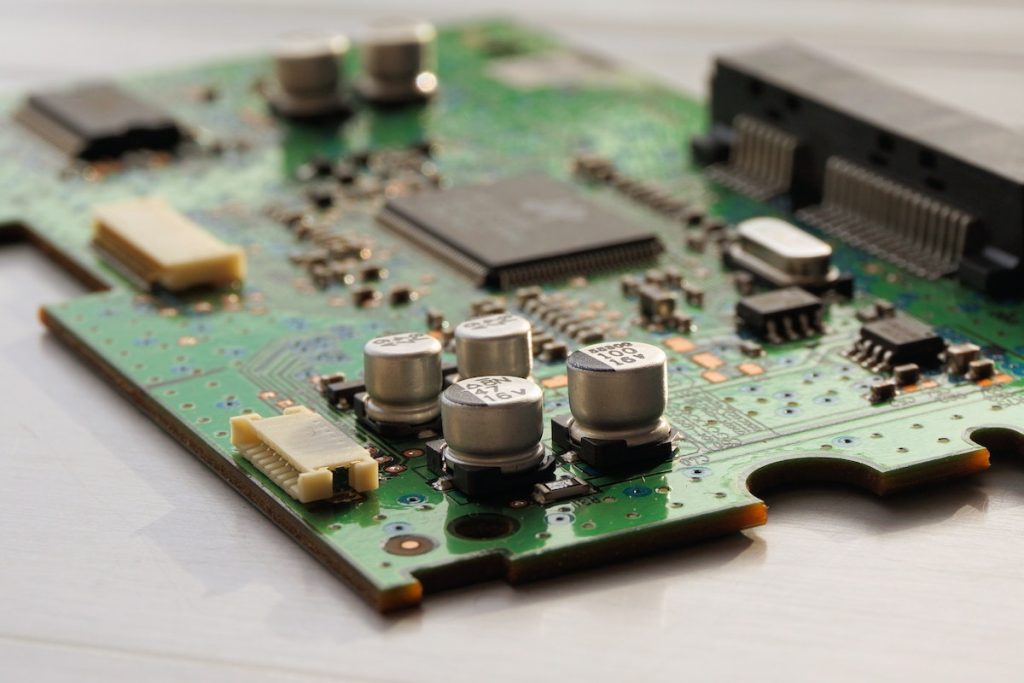- Invest in the right packaging materials, such as sturdy boxes and shock-absorbing materials, to ensure the secure delivery of electronic products.
- Utilize tracking technologies such as RFID tags, GPS tracking, and barcode scanners to monitor shipments in real-time.
- Choose a reliable logistics partner with experience in the electronics industry and up-to-date security protocols.
- Use climate control to protect your electronic components if shipped over long distances.
An electronics manufacturing company produces highly sensitive and valuable components that must be shipped to various locations. These items must be handled securely and safely, especially when transported in large quantities or over long distances.
Logistics plays a key role in the success of any electronics manufacturing business. Ensuring that your shipments arrive on time and in one piece is essential for keeping your customers happy and maintaining the reputation of your business. However, with so many factors to consider, it can be difficult to guarantee the safe delivery of your goods. Here are some tips to help you ensure secure logistics for your electronics manufacturing business.
Packaging Materials
The right packaging materials are important for protecting delicate electronic components during transit. Make sure to invest in sturdy boxes and thick packing foam. Use shock-absorbing materials such as bubble wrap or air pillows for added protection. This will cushion your products against bumps or drops during their journey from the warehouse to the customer’s doorstep. Here are some of the most essential electronic products and how to securely package them:
Printed Circuit Boards
Printed Circuit Boards (PCBs) are sensitive electronic components used in various electronic products. To protect these components during transit, use anti-static packaging materials and bubble wrap to insulate them and prevent damage from static electricity. They should be placed inside a box filled with foam or air pillows to prevent shocks or vibrations.
Lithium-ion Batteries
Used in a variety of handheld electronic devices, lithium-ion batteries should be packaged and shipped separately from other items. An effective battery transport procedure for these batteries should include using insulated materials such as bubble wrap and a metal container. This will prevent any short circuits caused by the metal container and protect against external shocks or vibrations.
Computer Chips
These are small and delicate components that must be handled with care. To ensure their safe transportation, place them inside an anti-static bag surrounded by foam or bubble wrap to protect against external shocks and static electricity. Additionally, put the chips in a sealed box filled with air pillows to cushion them against any bumps during the journey.

Tracking and Monitoring
Secure logistics for electronics manufacturing also involves tracking your shipments in real-time. This means you should have an up-to-date, reliable tracking system for each package or shipment. You should utilize the following technologies to keep an eye on your shipments:
RFID Tags
Radio Frequency Identification (RFID) tags are small chips that allow you to monitor and track packages as they move throughout the supply chain. This also helps you to quickly locate and identify any packages that may have been misplaced or stolen.
GPS Tracking
Global Positioning System (GPS) tracking allows you to pinpoint the exact location of a package in real time. This helps you locate packages that may have gone astray and provides information on estimated delivery times and route changes. GPS also allows you to stay updated on your shipments’ progress and ensure they are delivered safely.
Barcode Scanners
Investing in a barcode scanner will help you read, store, and access data in real-time. This helps streamline the tracking process and makes it easier to manage inventory and stock levels.
Logistics Partners
When choosing a reliable logistics partner, you should remember the following tips:
- Make sure that the company is experienced and knowledgeable in the electronics manufacturing industry.
- Check for references and reviews from previous customers to ensure their services are reliable and secure.
- Ask about their tracking system, security protocols, and insurance policies to ensure your shipments are safe throughout their journey.
Remember that you have invested a lot in your business. That’s why it is imperative that you find the right logistics partner who can provide secure, reliable, and efficient service.

Climate Control
Temperature changes can damage delicate electronic components. Ask your logistics partner about temperature control options such as climate-controlled storage units or insulated containers for shipping fragile electronics products over long distances. This ensures that extreme temperatures won’t cause any damage during transit, thus protecting both the product and the customer’s satisfaction upon arrival.
Logistics is not just about getting your products from point A to point B. It also means taking all necessary measures to ensure the secure delivery of your items. With a reliable logistics partner, you can focus on growing your business while they care for the rest.

